2018 年北京普通高中会考英语真题及答案
一、听力理解(共 25 小题,25 分。每小题 1 分)
第一节:听下面十段对话或独白,从各题 A、B、C 三个选项中, 选出能回答问题的最佳答案。每段对
话或独白你将听两遍。
听第 1 段材料,回答第 1 题。
1. When will the man go for dinner?
A. On Wednesday.
B. On Thursday.
C. On Friday.
听第 2 段材料,回答第 2 题。
2. What place of interest is the woman going to visit this year?
A.The Forbidden City.
B.The Summer Palace.
C. The West Lake.
听第 3 段材料,回答第 3 题。
3. What is the woman going to wear?
听第 4 段材料,回答第 4 题。
4. What is the man doing?
A. Giving advice.
B. Asking the way.
C. Offering help.
听第 5 段材料,回答第 5 题至第 6 题。
5.Where does this conversation most likely take place?
A. In a hotel.
B. In an office.
6.What does the woman advise the man to buy?
A. Larger trousers. B. Dark blue trousers.
听第 6 段材料,回答第 7 题至第 8 题。
7.Why does the woman visit the man?
A. To clean the house.
B. To buy furniture. C. To rent the flat.
8. What is in the kitchen now?
A. A fridge.
B. A cooker.
C. A washing machine
听第 7 段材料,回答第 9 题至第 11 题。
9.What does the woman ask the man to do?
A. Go to Simon's house.B. Play basketball. C. Tidy the bedroom.
10. How does the woman sound?
�
A. Angry.
B. Proud.
C. Excited.
11. What is the probable relationship between the two speaker s?
A. Classmates.
B. Mother and son.
C. Husband and wife.
听第 8 段材料,回答第 12 题至第 14 题。
12. What does the man ask the woman to do?
A. Check the computer. B. Watch the program. C. Change the computer.
13. What is the woman's suggestion?
A. Reading the handbook.
B. Asking people for help.
C. Using the computer more often.
14. What is the man going to do?
A. Take a computer course. B. Learn from the woman. C. Learn by himself.
听第 9 段材料,回答第 15 题至第 17 题。
15. Which cinema are the speakers going to?
A. The one by the market.
B. The one opposite the park.
C. The one in the shopping center.
16. How will the speakers go to the cinema?
A. By car.
B. On foot.
C. By bus.
17. How do the speakers get tickets?
A. On the Internet.
B. From the box office. C. By telephone.
听第 10 段材料,回答第 18 题至第 20 题。
18. What does the speaker mainly talk about?
A. The skills of photographing.
B. The work as a photographer.
C. The qualities of a photographer.
19. What does the speaker find the most difficult?
A. Sports photography. B. Wedding photography. C. Advertising photography.
20. What is the most important for a photographer?
A. Interest.
B. Patience.
C. Travel.
第二节:听下面一段对话,根据题目要求在答题卡上相映题号后的横线上写下第 21 至第 25 题的关键
信息。此段对话你将听两遍。
Rent-a-car Reservation Form
Customer Name
21
Shumley
�
Driving License No.
Car Type
F
A
22
23
Ford C-Max Energi
Rental Period
5 days, from
24 , 7 to 12
Pick-up Point
At the
25
二、完形填空(共 15 小题,15 分。每小题 1 分)
A
Anna was a 9-year-old girl from a small village. She 26 attending primary school
till 4th grade at her village. For the 5th grade onwards, she would have to get an
admission(A) in a school at a city nearby. She got very
27
knowing that she was
accepted in a famous school in the city. Today was the first day of her school and she
was waiting for her school bus. Once the bus came, she got in it
28
. She was very
excited.
29 the bus reached her school, all students started going to their classes. Anna also
made it to her classroom. Upon seeing her 30
clothing and knowing she was from a small
village, other students started making fun of her. The teacher soon arrived. She
31
Anna to the class and told them that she would be 32 with them
from today.
During the class the teacher told the students to be ready for the surprise
33
now! She told everyone to write down the Seven Wonders of the world. Everyone started
writing the answer quickly. But Anna started to write the answer
34
.
When everyone except Anna had presented their answer paper, the teacher asked Anna,
"What happened, dear? Don't 35
. Just write what you know as other students have
learned about it
just a few days 36
. "
Anna replied, "There are many things. Which seven can I pick to write?" And then
she handed her answer paper to the teacher. The teacher started reading everyone's
answers and the majority had answered them
37
such as The Great Wall of China,
Colosseum, Stonehenge, Great Pyramid of Giza, Leaning Tower of Pisa, Taj Mahal, Hanging
Gardens of
Babylon
etc.
The teacher was happy as students had 38 what she had taught them. At last the
teacher
picked up Anna's answer paper and started reading. "The Seven Wonders are To be
able to See, To be able to Hear, To be able to Feel, To Laugh, To Think, To be Kind, To
Love!"
The teacher stood
39 and the whole class was speechless. Today, a girl from a
�
small
village reminded us about the gifts we have, and use what we have.
which are
truly a 40. So value what we have and use what we have.
26. A. finished
B. liked
C. suggested
D. practised
27. A. anxious
B. happy
28. A. quickly
B. easily
29. A. Until
B. When
30. A. simple
B. clean
C. afraid
C. lazily
C. Unless
C. lovely
D. calm
D. patiently
D.Although
D.expensive
31. A. pushed
B. followed
C. turned
D. introduced
32. A. moving
B. studying
C. training
33. A. gift
B. test
C. party
D. living
D. lesson
34. A. slowly
B. actively
C. cheerfully
D. politely
35. A. cry
36. A. on
B. forget
B. later
C. write
C. back
D. worry
D. away
37. A. neatly
B. proudly
C. briefly
D. correctly
38. A. shared
B. expanded
C. missed
D. remembered
39. A. satisfied
B. disappointed
C. shocked
D. frightened
40. A. talent
B. reward
C. wonder
D. challenge
三、阅读理解(共 20 小题,40 分。每小题 2 分)
第一节:阅读下面短文,从各题 A、B、C、D 四个选项中,选出最佳答案。
Travelling Abroad
A
Many tourists go and see parks, museums and castles when they visit a new place.
There are many things I like about travelling, but waiting in line to buy museum tickets
and then having your visit ruined by noisy tour groups is not one of them. The things
that make places special are all around the famous buildings, not inside them.
My recent trip to India is a good example of this. By far the most interesting part
of it was getting to know people— bicycle-taxi drivers, policemen riding elephants and
children trying to earn
some money by cleaning shoes. Meeting various people was all so
amazing that I didn't need to do any "proper" sightseeing.
I also have fantastic memories of Florence. It was a boiling hot day and people
lined up for at least a kilometer long outside the museum. Instead of joining it, I sat
in a shady square, ate a delicious pizza and listened to a man singing opera songs to
only a few listeners. If I had waited in line, I would have missed this experience.
One of the best things about travelling is creating memories to bring back. When I
got back home from a holiday in Malaysia, I made some of the dishes I'd tasted in the
�
food market. Maybe my results weren't as good as the real thing, but they reminded me of
the places and the people I'd met—far better than anything from a gift shop.
41. On his trip to India, the author enjoyed
A. riding on an elephant
B. playing with children
C. visiting famous buildings
D. meeting different people' '
42. In Florence, the author
A. went to a food market
B. talked with local people
C. experienced local life
D. lined up for museum tickets
43. The author cooked Malaysian food at home because
A. it brought back memories
B. it was easy to prepare
C. he wanted to sell the food
D. he was going to Malaysia
44. What does the author try to tell us in the passage?
A. How to prepare for a trip.
B. What to take when travelling.
C. Where to buy gifts in a foreign city.
D. What to look for when travelling.
B
Courses on Learning Online
Learning and Communicating
Online learning is likely to be important for you in the future, either at university or
in the workplace. Learning online requires different skills from learning in the
classroom. This course will help you develop those skills. It also shows you how to
learn and communicate effectively in an online environment.
Join
free
Start Time: 5 February 2018
Searching and Researching
In this course, you'll explore the rich and different information online by using a
variety of search engines and tools. You'll learn how to use search tools and how to
find the right information. You will take part in a large number of learning activities.
You will be challenged to dig deeper and think seriously about the online information.
Start Time: 10 February 2018
Join
free
Thinking and Sharing
In this course, you'll be introduced to some tools you can use. These tools will help
�
you think of your learning, such as short tests and quizzes. You will then move on to
share your learning with others. By sharing video, using blogs or social media you can
enrich the learning experience.
Start Time: 15 February 2018
Join
free
Being Safe Online
Many of us now have an online ID. In this course you'll consider your online presence.
You'll discover that what we say and do online can tell our real lives. You'll also
spend time improving your online ID. You can get the most out of being yourself online.
You'll apply a personal code(1j) for online communication.
Start Time: 20 February 2018
Join
free
45. If you take the course about online communication, you can begin your course on
A. 5 February 2018
B. 10 February 2018
C. 15 February 2018
D. 20 February 2018
46. Which course can teach you how to deal with online information?
A. Learning and Communicating.
B. Searching and Researching.
C. Thinking and Sharing.
D. Being Safe Online.
47. Which of the following can help you think of your online learning?
A. Video and blog.
B. Search engine.
C. Test and quiz.
D. Personal code.
48. What are the four courses mainly about?
A. Online learning skills.
B. Online learning tools.
C. Learning styles.
D. Learning behaviors.
C
Have you ever been to the beach? Did you see a man with a headset
pointing a long stick at the ground? If so,you might have seen a person
using a metal detector(VMM). People use these tools to find metal.Metal
detectors make magnetic(AVtLIA) waves. These waves go through the ground.
The waves change when they hit metal. Then the tool makes a short high
sound. This lets the person with the tool know that metal is close.
The first metal detectors were meant to help miners to dig out minerals such as
coal and gold from the earth. They were big and cost a lot of money. They used a lot of
�
power. And worst of all, they didn't work well. People kept trying to make them better.
Metal detectors got smaller. Now they are light and cheap. They also work better.
That is why people bring them to the beach. They can look for rings in the water or
phones in the sand. Metal detectors help them find these things.
Metal detectors also protect people. They help to keep guns out of some places.
Guards use special thin sticks to look for knives, guns or metal on a person.
These tools save lives in other ways too. During wars, soldiers plant bombs in the
ground. When the war ends, they don't clean them up. This is unsafe for the people who
live in those places. So they use metal detectors to find bombs and remove them.
These tools also make clothes safer. It sounds funny, but it's true. Most clothes
are made in big factories. Needles are easy to break and get stuck in the clothes. They
would hurt people. So our clothes are examined carefully by metal detectors.
Let's hear it for metal detectors. They make the world a safer place.
49. What does the second paragraph mainly talk about?
A. How metal detectors work.
B. Why magnetic waves change.
C. The danger of metal detectors.
D. The sounds of a metal detector.
50. What were the first metal detectors used for?
A. Removing bombs.
B. Finding needles in the clothes.
C. Looking for minerals.
D. Searching for dangerous things.
51. According to the passage, metal detectors can make people feel
A. nervous
B. special
C. safe
D. healthy
52. What is the best title for the passage?
A. Inventor of a Useful Tool
B. Usage of Metal Detectors
C. Finding Underground Metals
D. Changes of Magnetic Waves
How a Teacher Can Change Your Life
D
Smiling with satisfaction, Karin Anderson continues to conduct while dozens of
students were playing their instruments, and Gustav Mahler's Fifth Symphony? fills the
hall. The emotional(W6n) drama of conducting an orchestra(MR*111) of teenagers is part
of a typical day's teaching for Karin. "Teaching is like surfing," she says. "You have
no idea what's going to happen and there's no guarantee that things will go according to
plan. You have to be on guard at all times." But the unpredictability of her students
doesn't make her job hard, she says. In fact, working with sometimes difficult teenagers,
which she says might exhaust other teachers, is what keeps her coming back day after day.
Karin believes music lessons may have unexpected benefits. Research has found that
�
they improve a child's language development, and the reasoning skills extremely
important to maths and science. "We can't be sure if music really makes kids perform
better academically, or if smarter students just naturally become involved with music
anyway, but there might be a connection. Certainly, schools need something for those
brighter students. It's not so much giving them a release from studying hard, but more
that they need to be stretched, and pushed in a different direction."
But the benefits of music education are for everyone, not just the clever kids.
Karin points out that there are strong connections between music and the motivation to
learn, the ability to focus, and even someone's confidence and tolerance.
Music can also help to create a positive, supportive learning environment, which
Karin always tries to create in her orchestra. Being grouped by age, not ability, makes
everyone new feel welcome and part of a family. "In school you're very aware of social
classes—the rich kids and the poor kids—and all the little groups that gossip all the
time," says orchestra member Laura Greene. "But in the orchestra, everyone is part of
the group, and equally important. We're all trying to improve together. We've all got
unique talents."
In Karin's classroom, there are no awards decorating the walls. She says this might
put the orchestra under pressure or make them worry about competition, though in fact
the school has won many prizes, which she is clearly proud of. "What's most important to
me is that everyone works as a team," she says. "It's a magic moment when there's
absolute unity."
Karin wants the orchestra to widen the horizons of everyone who joins. When some
parents weren't able to afford certain trips of the orchestra, Karin surprised everyone
by organizing what she called "scholarships", with the school paying part of the money
to students who had been positive and cooperative. They weren't awarded on the basis of
who had a special gift for music.
In her office, Karin proudly displays a picture of another student. Karin says,
"Thomas was smart, but he hated school, and he seemed cut off from his peers, alone in a
world of his own. The orchestra made him come out of his shell." After graduating,
Thomas wrote to Karin, "I'm so grateful to you for allowing me to play the most
beautiful music in the world, even though I never took it up professionally. I
understand now that music educates the mind and the heart, and helps you to connect with
others."
0 The Fifth Symphony was composed by Gustav Mahler and is one of his well-known
works. Gustav Mahler (1860-1911) was an Austrian composer and conductor.
�
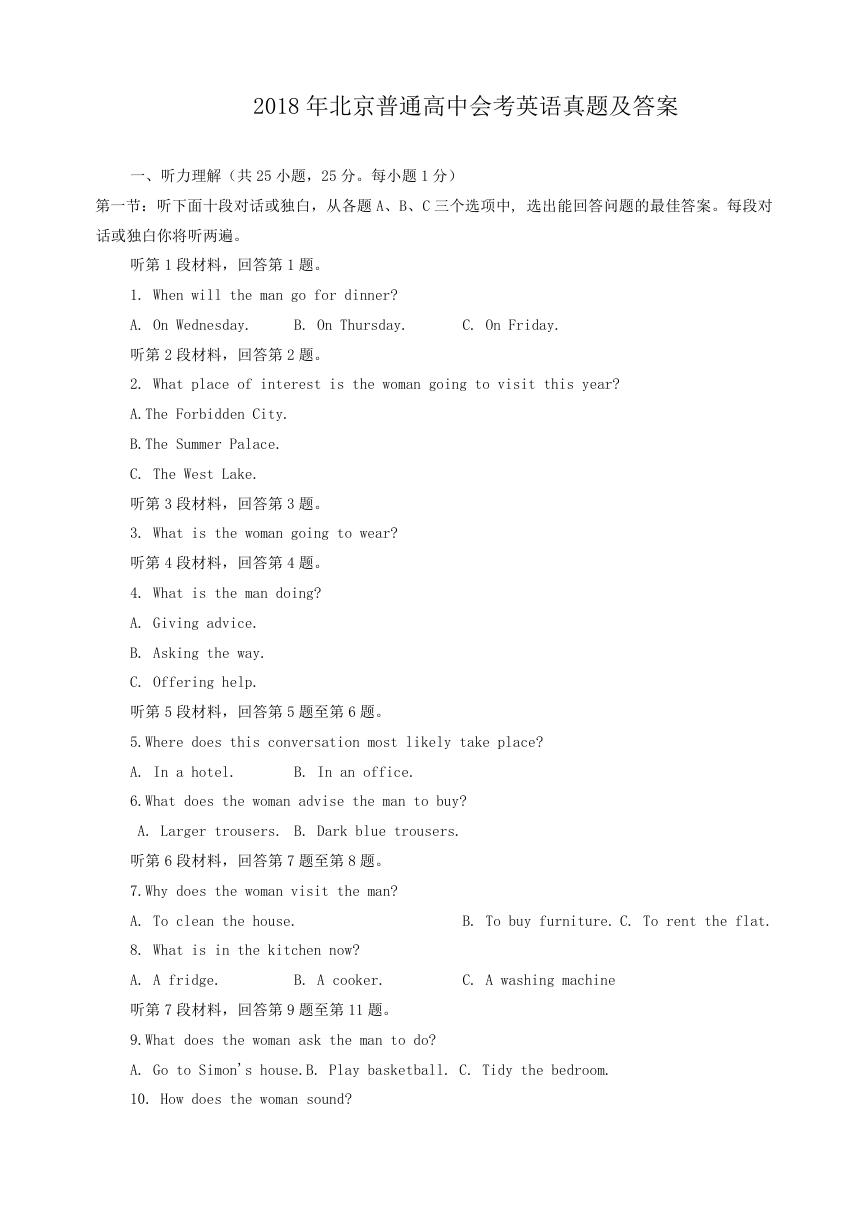
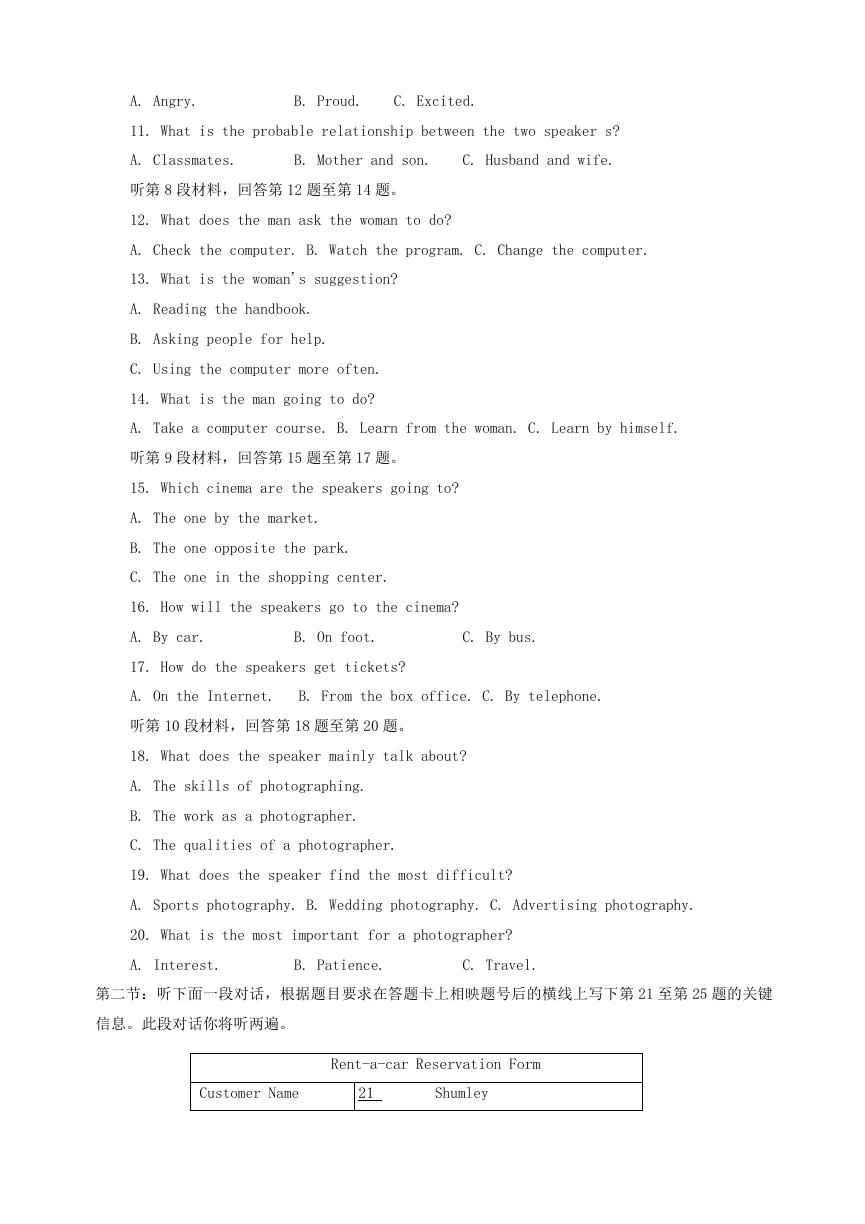
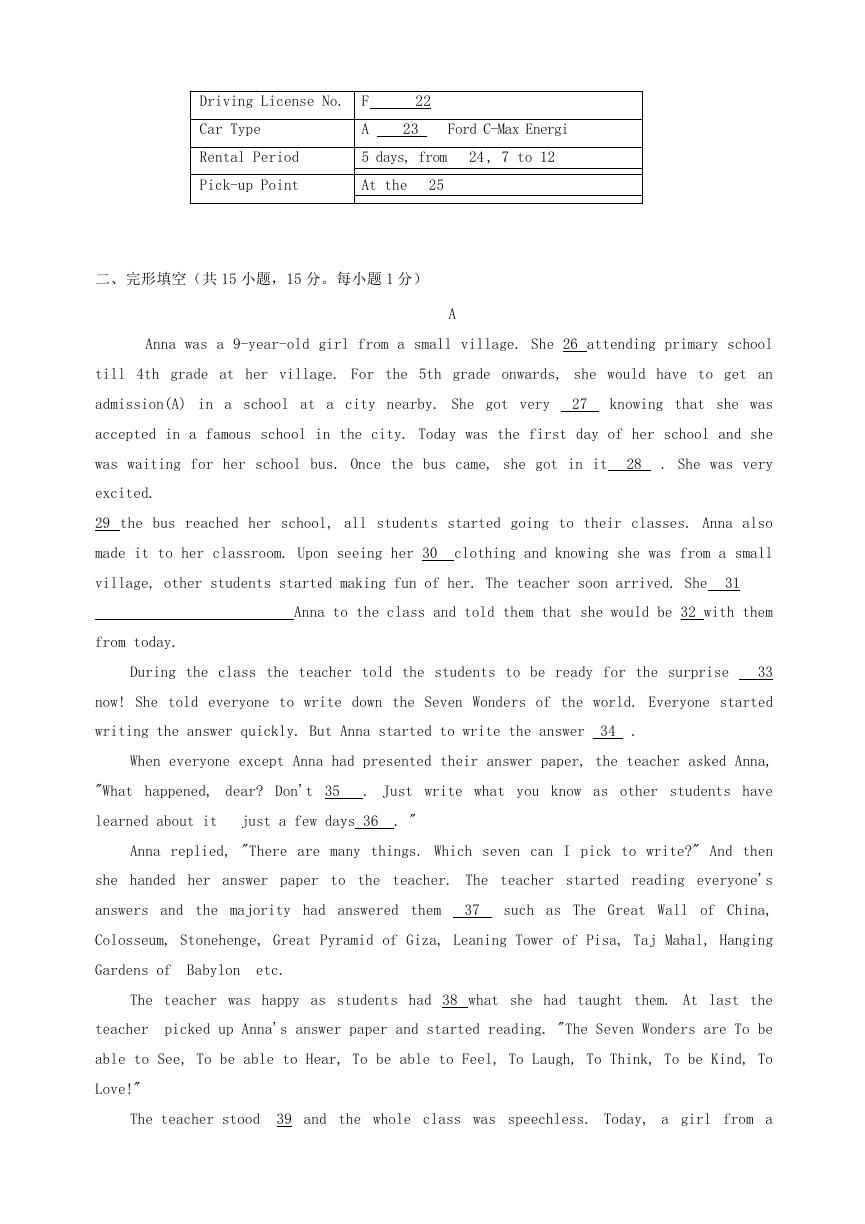
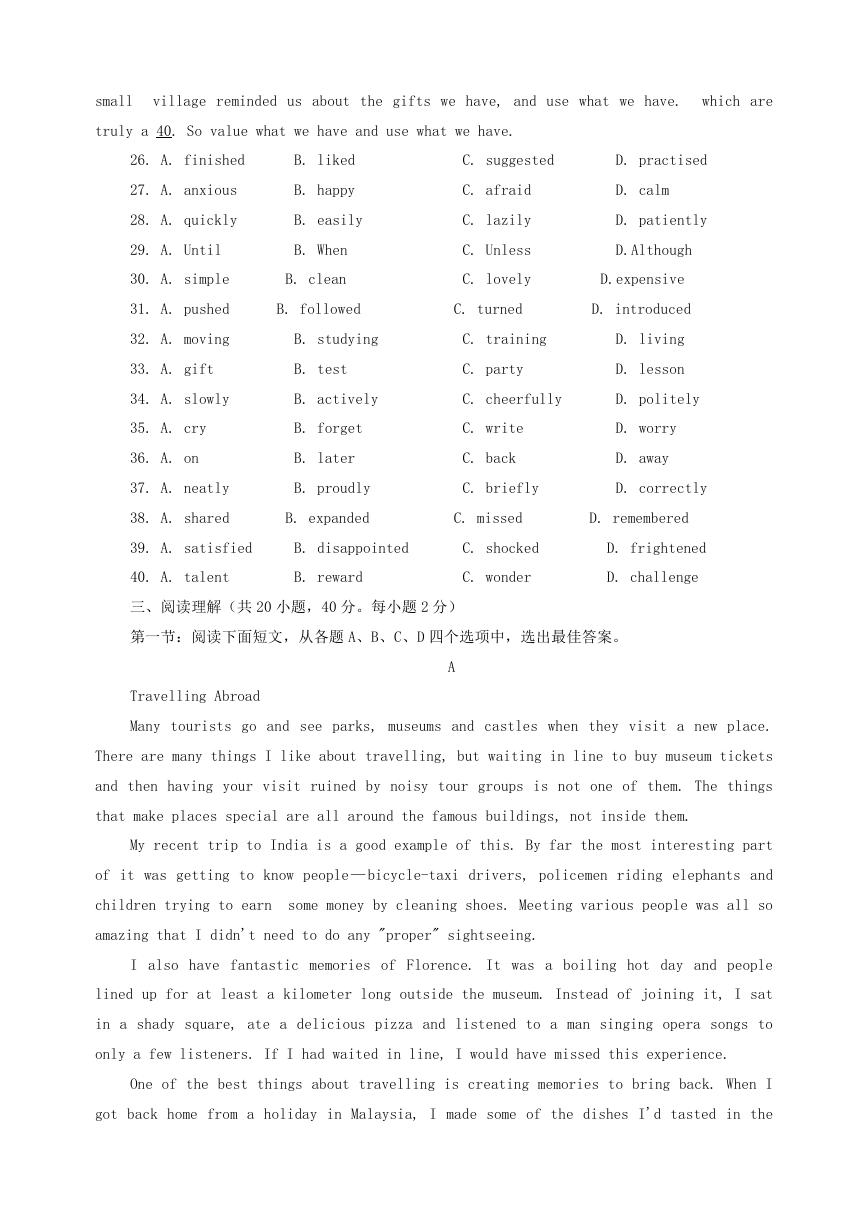
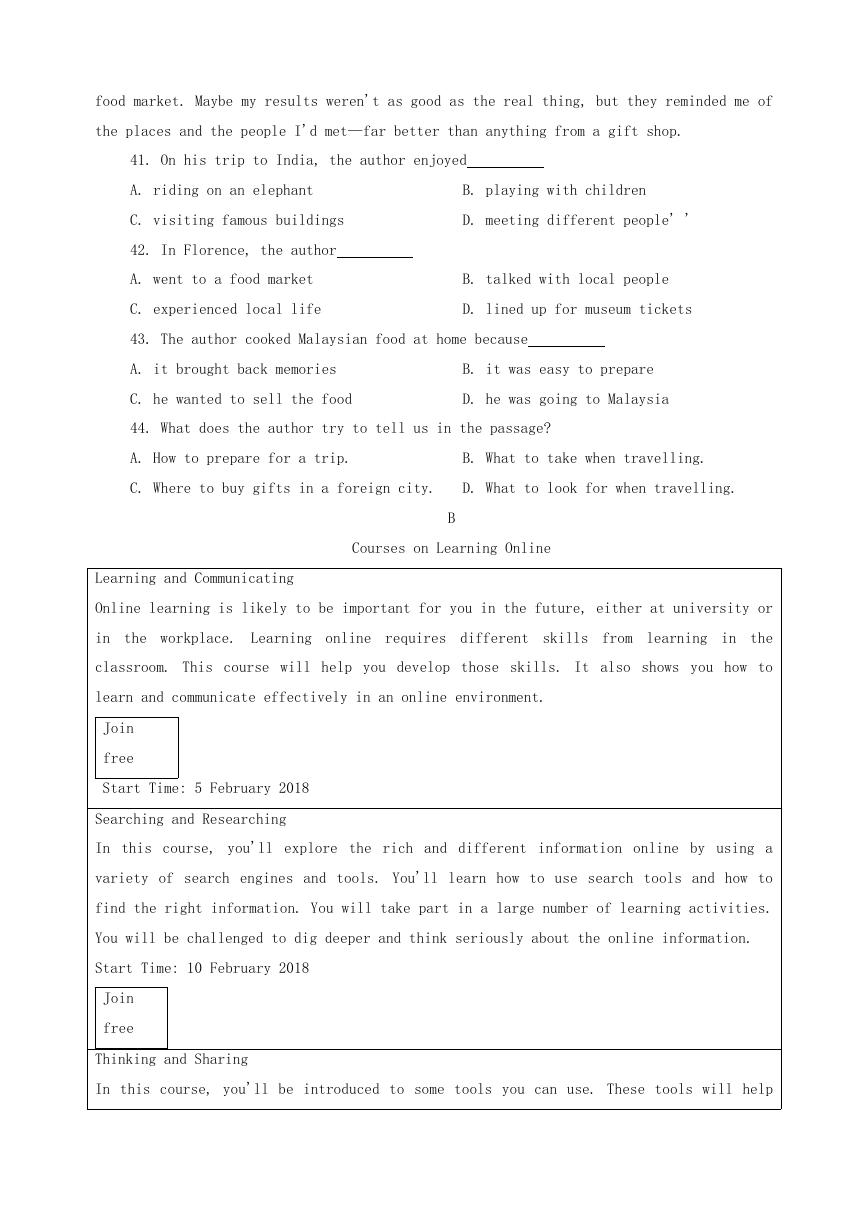
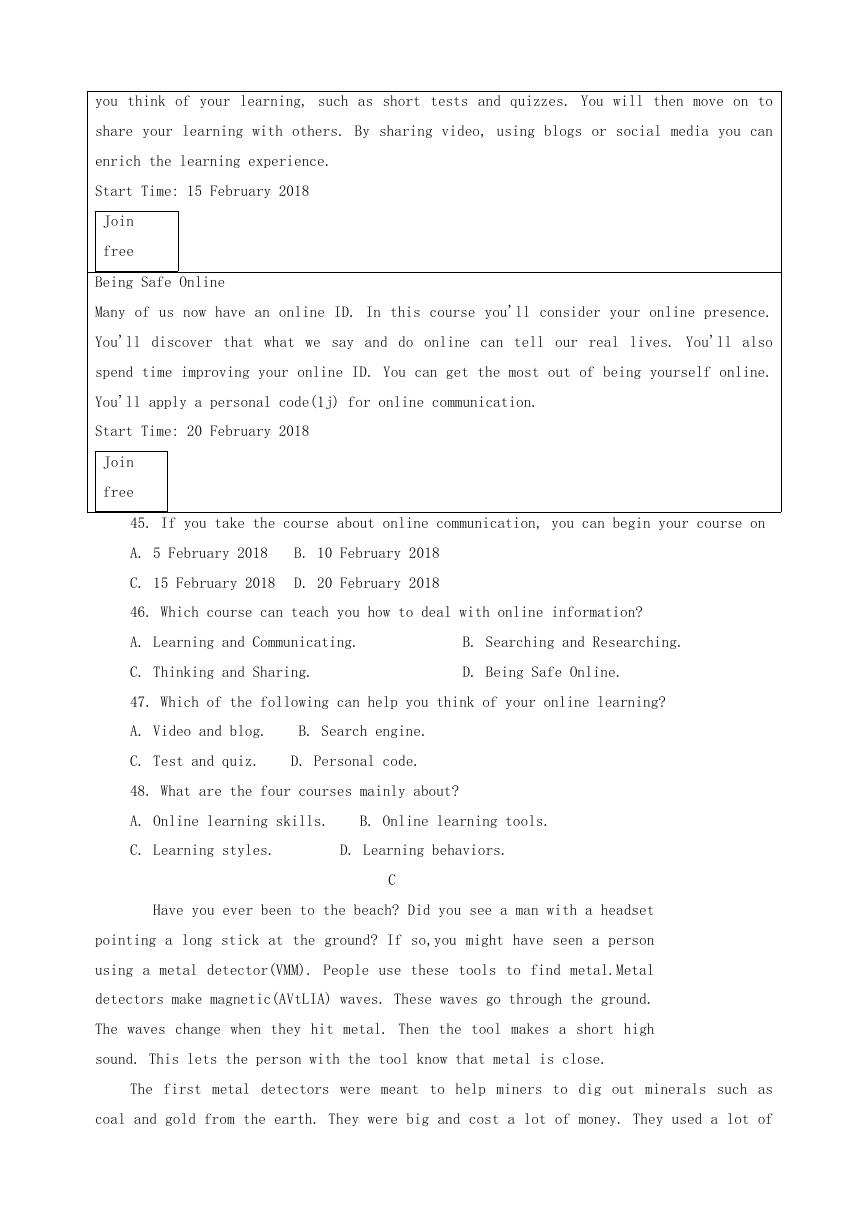

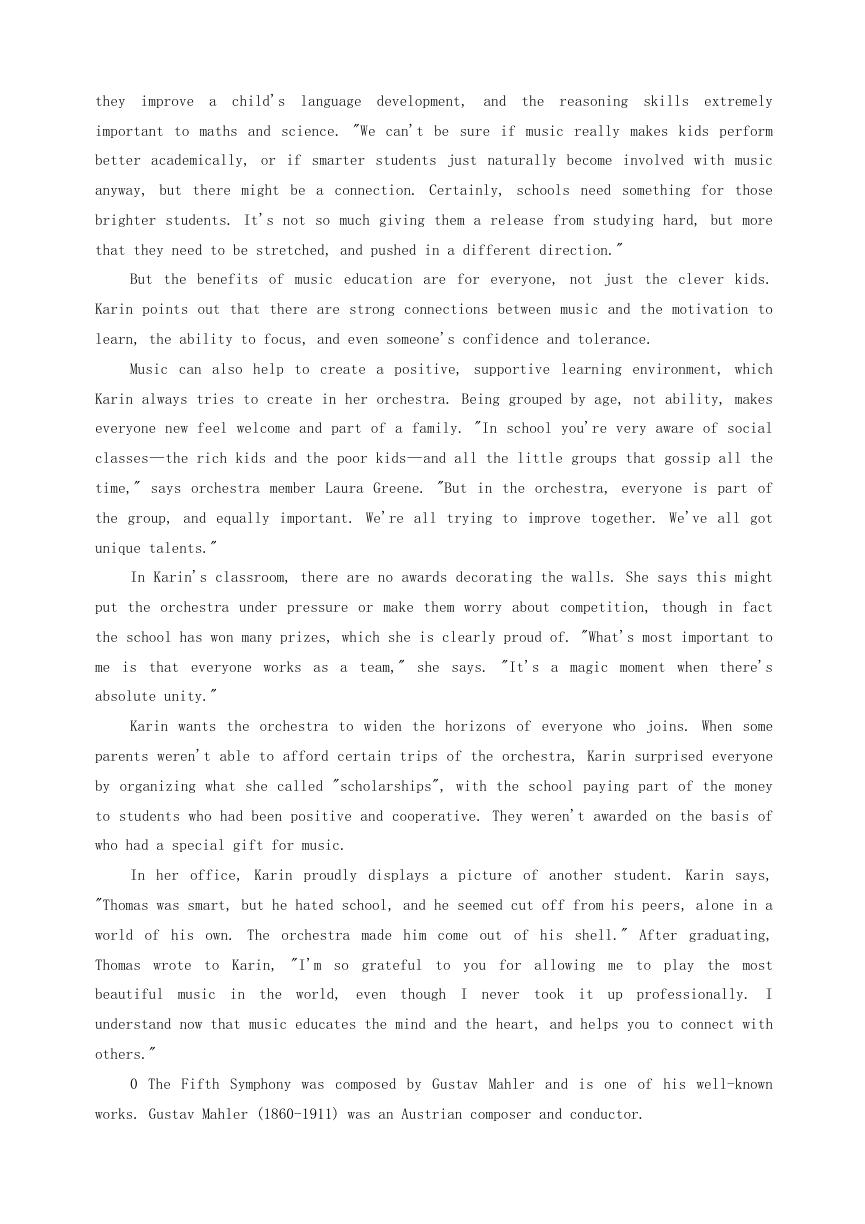








 2023年江西萍乡中考道德与法治真题及答案.doc
2023年江西萍乡中考道德与法治真题及答案.doc 2012年重庆南川中考生物真题及答案.doc
2012年重庆南川中考生物真题及答案.doc 2013年江西师范大学地理学综合及文艺理论基础考研真题.doc
2013年江西师范大学地理学综合及文艺理论基础考研真题.doc 2020年四川甘孜小升初语文真题及答案I卷.doc
2020年四川甘孜小升初语文真题及答案I卷.doc 2020年注册岩土工程师专业基础考试真题及答案.doc
2020年注册岩土工程师专业基础考试真题及答案.doc 2023-2024学年福建省厦门市九年级上学期数学月考试题及答案.doc
2023-2024学年福建省厦门市九年级上学期数学月考试题及答案.doc 2021-2022学年辽宁省沈阳市大东区九年级上学期语文期末试题及答案.doc
2021-2022学年辽宁省沈阳市大东区九年级上学期语文期末试题及答案.doc 2022-2023学年北京东城区初三第一学期物理期末试卷及答案.doc
2022-2023学年北京东城区初三第一学期物理期末试卷及答案.doc 2018上半年江西教师资格初中地理学科知识与教学能力真题及答案.doc
2018上半年江西教师资格初中地理学科知识与教学能力真题及答案.doc 2012年河北国家公务员申论考试真题及答案-省级.doc
2012年河北国家公务员申论考试真题及答案-省级.doc 2020-2021学年江苏省扬州市江都区邵樊片九年级上学期数学第一次质量检测试题及答案.doc
2020-2021学年江苏省扬州市江都区邵樊片九年级上学期数学第一次质量检测试题及答案.doc 2022下半年黑龙江教师资格证中学综合素质真题及答案.doc
2022下半年黑龙江教师资格证中学综合素质真题及答案.doc